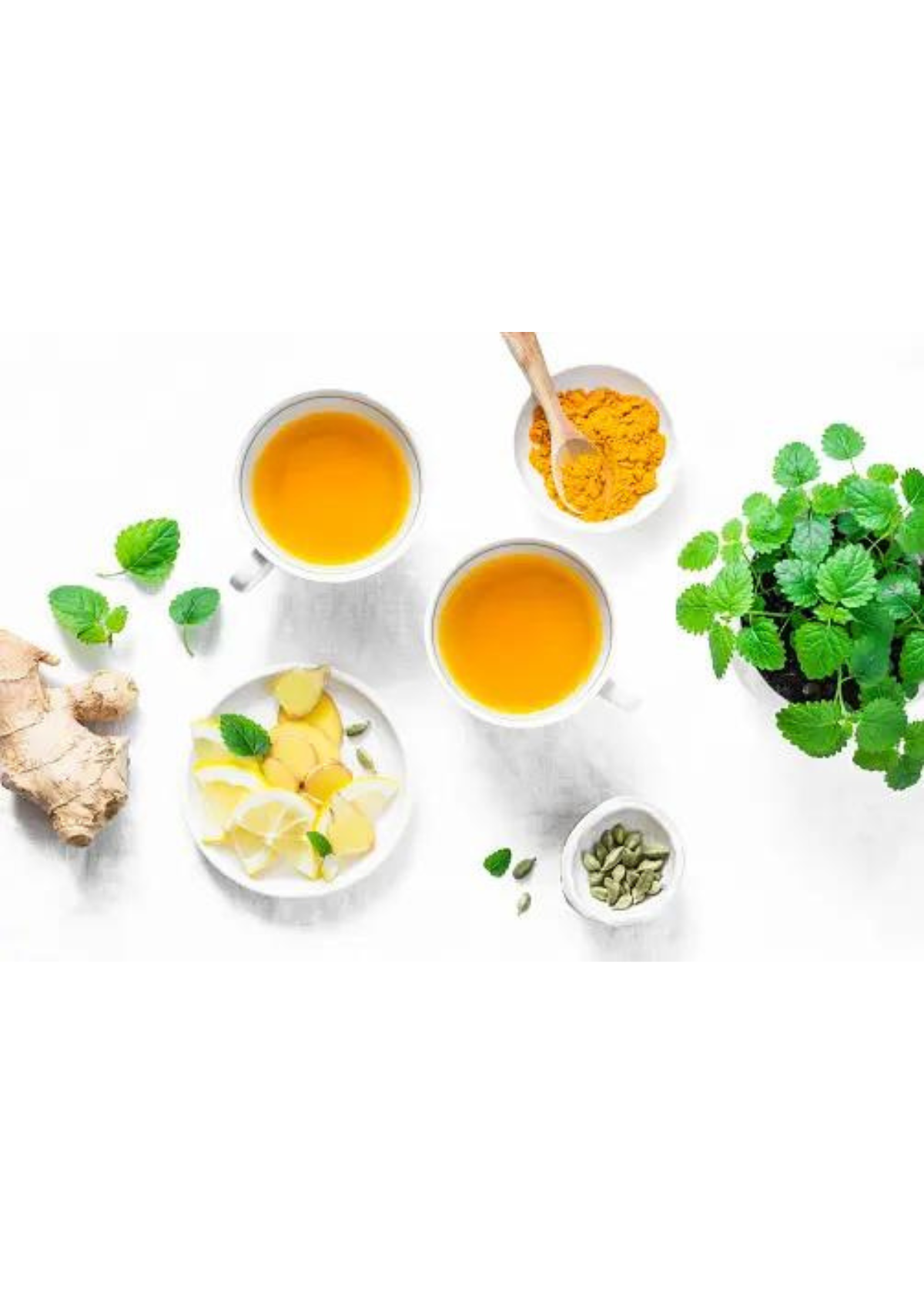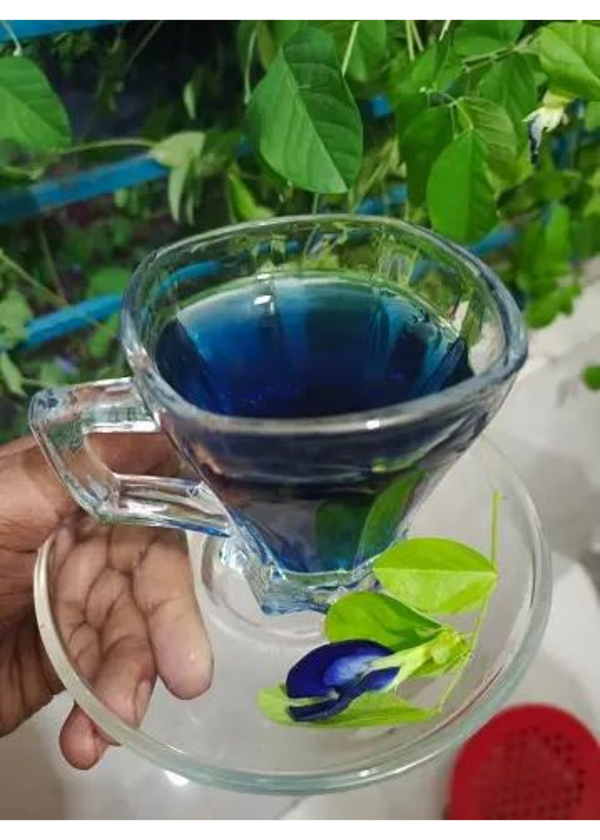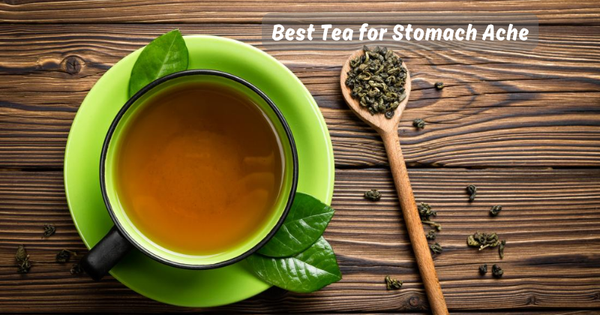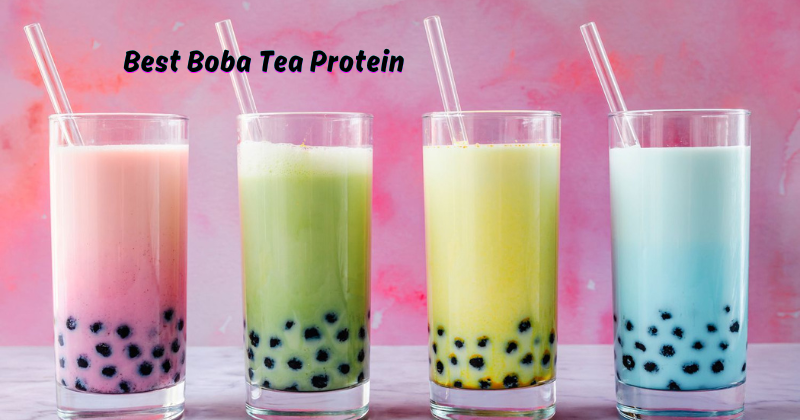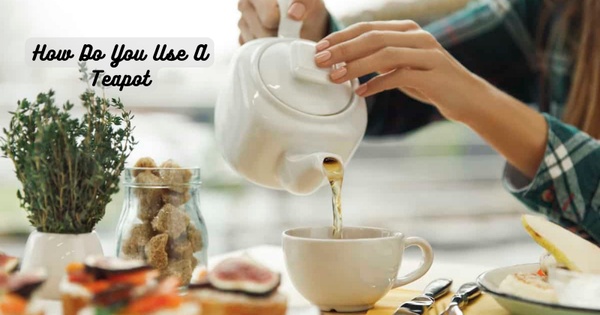Are you feeling the effects of chronic inflammation?
You’re not alone. It’s an issue that many people deal with daily, and fortunately, natural remedies are available to help reduce inflammation. Tea is a remedy that offers soothing flavors, aromatic experiences, and powerful properties known to soothe inflamed areas.
We've done thorough research to bring you the top five anti-inflammatory teas available on Amazon, perfect for those looking for all-natural relief from pain associated with chronic inflammation. Each tea uses carefully selected ingredients to promote natural healing while reducing painful symptoms.
Our Selection Criteria
Dealing with inflammation can be a real pain, both physically and emotionally. It affects our daily lives and makes it difficult to enjoy the things we love.
Trying countless remedies is incredibly frustrating, and nothing seems to work. We want something that will bring us relief and make us feel better.
That's why we created the Best Teas for inflammation. We've done all the hard work of research and testing to find the top five anti-inflammatory teas out there. These teas have consistently received positive customer feedback, are backed by scientific evidence, and have been recommended by experts. So now, you can finally find relief and soothe your body with a cup of tea that works.
Turmeric Tea
Reasons for Admiration
Welcome to your perfect cup of tea—Turmeric Tea! You'll love this unique, flavorful tea for more than just its earthy taste and vibrant color. Made from the root of the turmeric plant, it's also full of curcumin, an incredible compound known for its powerful anti-inflammatory results.
With Turmeric Tea, you'll enjoy the best of both worlds: a beautiful, fragrant cup of hot tea and all its health benefits. Why not treat yourself to an indulgent cup of Turmeric Tea today? It's the perfect way to ensure you get nourishment and enjoy every sip. And don't forget to share your love with family and friends. Turmeric tea is ideal for bonding with your favorite cup of tea. Enjoy!
Essential Insights
Do you struggle with chronic inflammation? If so, consider adding turmeric herbal tea to your daily routine. Curcumin, the active component in turmeric, has been extensively researched for its inflammation-fighting properties.
It belongs to the ginger family and has been used in herbal and Ayurveda medicine for thousands of years because it has several medicinal functions. Turmeric contains Curcuma, which reduces inflammation and promotes good health. Turmeric tea is a vivid orange-gold color, gaining popularity with increasing awareness about its many health advantages.
Studies have linked it with alleviating joint pain, reducing symptoms associated with inflammatory bowel diseases, and lowering markers of inflammation. While generally safe, be mindful of potential gastrointestinal discomfort or drug interactions when drinking tea with high doses of curcumin.
Ginger Tea
Reasons for Admiration
There is nothing quite like the perfect cup of ginger tea. With its fiery and intense flavor, balanced with just a hint of sweetness, ginger tea offers a cozy and comforting experience. Its unique flavor comes from the rhizome of the ginger plant, which has been revered for centuries as one of the most versatile teas available.
But that's not all--ginger tea is renowned for its powerful anti-inflammatory abilities. Rich in potent compounds called gingerols, this special brew has been shown to reduce muscle soreness and improve digestion, making it an ideal choice for those battling everyday aches and pains or issues with gut health. Whether you're a seasoned tea lover or simply looking for something new, ensure you have some delightful ginger tea!
Essential Insights
Are you a fan of herbal teas? If so, you might want to consider trying ginger tea. It's known for its fiery and intense flavor but offers many health benefits. Ginger tea is sourced from the rhizome of the ginger plant and is considered one of the most versatile anti-inflammatory teas.
Chronic inflammation is a common issue in the body, but ginger tea can help fight against it. The gingerols in ginger possess potent anti-inflammatory compounds that can inhibit the production of pro-inflammatory cytokines. Scientific research has shown that ginger is effective in reducing markers of inflammation and can even provide relief from muscle soreness, digestive issues, and migraine headaches.
Ginger has been traditionally used with many herbs and coffee beverages and is widely known as a potent antioxidant that reduces inflammation. It is an aromatic spice that enhances the flavor and offers several medicinal purposes to the human body. Ginger tea may help relieve muscle pains and arthritis.
It's a great alternative to turmeric herbal tea, especially if you do not like the taste. Of course, like any food or herbal product, ginger tea may have potential side effects if consumed in large amounts or if taken alongside certain medications. But overall, drinking ginger tea is a warm and comforting experience that can benefit your health.
Green Tea

Reduces Inflammation-Related Symptoms, Improves Cardiovascular Health
Green Tea
Reasons for Admiration
Green tea has been celebrated for centuries for its delicate flavor and refreshing taste. Crafted from the leaves of the Camellia sinensis plant, this tea contains high polyphenols, specifically catechins like epigallocatechin gallate (EGCG). These compounds are believed to have anti-inflammatory and antioxidant properties, which may help reduce inflammation-related symptoms, improve cardiovascular health, and even help fight cancer.
But that’s not all. Many fans of green tea love its naturally sweet, earthy flavor and usually prefer it to more robust flavors like black tea. So, if you’re looking for an enjoyable yet health-conscious drink that hits all the right notes, our delicate green tea is the perfect choice.
Plus, it is generally well-tolerated and safe to enjoy in moderation. However, drinking too much may lead to mild stomach upset or interfere with certain medications, so it’s best to check with your doctor before upping your daily dosage.
Essential Insights
Have you ever considered replacing your cup of coffee with a warm, herbal tea? Not only is drinking tea a comforting ritual, but certain types of herbal tea, such as green tea, can also have fantastic health benefits.
Green tea also has antibacterial properties. Green tea contains powerful antioxidants, which reduce harmful free radical damage and combat oxidative stress. This tea can be beneficial for many health reasons, including anti-arthritis, antibacterial, antiviral, and nerve protection.
This tea, in particular, is known for its inflammation-fighting properties, thanks to the powerful polyphenols it contains, particularly EGCG. Chronic inflammation in the body has been linked to some health issues, including cardiovascular disease and certain types of cancers.
Adding this tea to your daily routine may help combat these issues and improve your overall health. If you're interested in trying other types of herbal tea, why not experiment with turmeric or ginger tea? Monitor your intake and discuss potential medication interactions or side effects with your doctor.
Chamomile Tea
Reasons for Admiration
Welcome to the gentle and soothing world of chamomile tea! Perfect for tea lovers who appreciate a simple yet luxurious cup of tea, chamomile offers a calming experience that can’t be beaten. Chamomile is sourced from dried flowers, giving it that sweet infusion of flavor that helps you relax and enjoy your “me time” moment with each sip.
But this isn’t just any ordinary cup of tea - chamomile also has anti-inflammatory properties. Bioactive compounds such as flavonoids are known to reduce inflammation-related symptoms. Some people say it helps ease digestive issues and improve sleep quality! Ultimately, it’s all about providing you with the perfect cup of relaxation every time.
It’s important to note that chamomile tea is generally safe, but if you have allergies to plants in the daisy family, it would be best to exercise caution before trying it out.
So why wait? Enjoy a therapeutic experience with each brew of our fixin' Chamomile tea, ensuring that every sip will help you relax and unwind after a long day (or week!). Enjoy your perfect cup of relaxation, tailored just for you!
Essential Insights
Nothing quite like a warm, comforting cup of herbal tea to soothe the soul after a long day. Chamomile tea, in particular, has gained a reputation for its gentle, calming effects on the mind and body. But did you know that chamomile tea also offers anti-inflammatory relief?
Chamomile is an herbal tea traditionally used for colds, coughs, muscle pains, and other ailments. It reduces inflammation, boosts immune response, and aids overall health. Chamomile tea is served alone, with honey if desired, or mixed with herbs or spices.
That's right! Its bioactive compounds, like flavonoids, can help reduce inflammation-related symptoms, improve sleep quality, and relieve digestive issues. While chamomile tea is generally safe for consumption, it's important to note that individuals with allergies to plants in the daisy family should take caution.
If you're looking for another herbal tea to add to your collection, consider turmeric or ginger tea. These teas also boast anti-inflammatory benefits. So why not cozy up with a warm mug and sip away your chronic inflammation?
Matcha Tea

Reduces Inflammation-Related Symptoms and Improves Cognitive Function
Matcha Tea
Reasons for Admiration
Are you looking for something extra special for your perfect cup of tea? Look no further than Matcha tea! From its unique flavor profile to its vibrant green color, Matcha tea will surely delight you. Not only will you be getting a delicious cup of tea for your enjoyment, but you'll also be reaping various health benefits.
Matcha stands out from other types of tea for its high concentration of catechins, such as EGCG. These potent compounds provide inflammation-fighting properties and offer antioxidant and anti-inflammatory benefits. Matcha tea has been linked to reduced inflammation-related symptoms, improved cognitive function, and potential weight management benefits.
But that's not all—matcha tea is also simple to prepare. Whisk it with hot water, and you'll have a delicious cup of tea.
So why not try a cup of Matcha tea today? It's sure to provide a unique, flavorful experience, and you'll reap the rewards of its health benefits as well. Just moderate your intake if you're sensitive to caffeine since Matcha contains some caffeine. Enjoy your perfect cup of Matcha tea!
Essential Insights
If you're a fan of drinking tea, you'll be happy to know that certain herbal teas can do more than soothe your soul. Matcha tea, in particular, has been found to have powerful inflammation-fighting properties thanks to its high levels of catechins, especially EGCG.
Inflammation in the body is linked to several chronic health conditions, so reducing it is essential. Multiple studies, including one published in the Journal of Biological Chemistry, have found that matcha tea can help protect against inflammation-induced damage and improve cognitive function.
However, it's worth noting that matcha tea contains caffeine, and sensitive individuals should monitor their intake. Other herbal teas with inflammation-reducing properties include turmeric and ginger tea. So, the next time you reach for a cup of tea, consider incorporating some inflammation-fighting herbal options for extra health benefits.
Buyer's Guide:
The Ultimate Buyer's Guide: Top 5 Best Teas for Inflammation
Inflammation is a common health concern, but did you know that certain teas can naturally help reduce inflammation? This comprehensive buyer's guide will explore the effectiveness and benefits of the top five teas known for their inflammation-fighting properties: Turmeric Tea, Ginger Tea, Green Tea, Chamomile Tea, and Matcha Tea. Let's delve into the unique ingredients, brewing instructions, potential health benefits, and scientific evidence to help you make an informed decision.
- Turmeric Tea:
Ingredients: Turmeric root, black pepper, honey (optional)
Brewing Instructions: Add one teaspoon of turmeric powder, a pinch of black pepper, and honey (if desired) to a cup of boiling water. Steep for 10 minutes and enjoy.
Health Benefits: Turmeric contains curcumin, a powerful anti-inflammatory compound. Studies suggest curcumin helps reduce inflammation in arthritis, asthma, and cancer.
Scientific Evidence: Several studies have shown that curcumin's inflammation-fighting properties inhibit the activity of various enzymes and molecules responsible for inflammation.
- Ginger Tea:
Ingredients: Ginger root, lemon juice, honey (optional)
Brewing Instructions: Peel and slice one inch of fresh ginger root. Add it to a cup of boiling water, along with a squeeze of lemon and honey (if desired). Steep for 5 minutes and enjoy.
Health Benefits: Gingerol, the active compound in ginger, has potent anti-inflammatory and antioxidant effects. It is known to alleviate pain and inflammation in conditions like osteoarthritis.
Scientific Evidence: Clinical studies have demonstrated that ginger suppresses the production of pro-inflammatory cytokines and chemokines, reducing inflammation.
- Green Tea:
Ingredients: Green tea leaves (loose or bagged)
Brewing Instructions: Steep one teaspoon of green tea leaves in a cup of hot water for 3-4 minutes. Strain and enjoy as-is, or add honey for taste.
Health Benefits: It contains catechins, which possess potent inflammation-reducing properties. Regular consumption reduces cardiovascular risk, decreases joint inflammation, and improves brain function.
Scientific Evidence: Numerous studies suggest that green tea catechins inhibit inflammatory pathways by blocking the activity of inflammatory molecules and reducing oxidative stress.
- Chamomile Tea:
Ingredients: Dried chamomile flowers
Brewing Instructions: Place 2-3 teaspoons of dried chamomile flowers in a cup of hot water. Steep for 5-10 minutes, strain, and relish the soothing flavor.
Health Benefits: Chamomile is known for its anti-inflammatory, antispasmodic, and analgesic properties. It can benefit digestive disorders, stress-related inflammation, and skin conditions.
Scientific Evidence: Studies indicate that chamomile's bioactive compounds, such as chamazulene and apigenin, inhibit COX enzymes and cytokines, reducing inflammation and promoting relaxation.
- Matcha Tea:
Ingredients: Matcha powder, hot water
Brewing Instructions: Sift 1-2 teaspoons of matcha powder into a cup, add hot water, and whisk vigorously until frothy. Enjoy the unique earthy flavor.
Health Benefits: Matcha is packed with antioxidants called catechins, particularly EGCG, which helps combat inflammation and oxidative stress. It can improve metabolism and enhance cardiovascular health.
Scientific Evidence: Research suggests that matcha tea's high catechin content can effectively suppress inflammation-related pathways and protect against chronic diseases.
Conclusion:
When combating inflammation, nature's remedies can be a powerful ally. Turmeric Tea, Ginger Tea, Green Tea, Chamomile Tea, and Matcha Tea have gained popularity for reducing inflammation and providing unique health benefits.
By considering the detailed information on ingredients, brewing instructions, potential health benefits, and scientific evidence, as well as personal experiences and testimonials, you can confidently select the best tea to support your specific needs. Stay informed and savor the healing power of tea!
FAQs Guide: Top Five Teas Known for Inflammatory Relief
1. How does drinking tea help reduce inflammation?
Green tea has been celebrated for centuries for its delicate flavor and refreshing taste. Crafted from the Camellia sinensis plant leaves, this tea contains high polyphenols, specifically catechins like epigallocatechin gallate (EGCG). These compounds are believed to have anti-inflammatory and antioxidant properties, which may help reduce inflammation-related symptoms, improve cardiovascular health, and even help fight cancer.
2. What are some of the best herbal teas known for their anti-inflammatory properties?
Some of the best herbal teas known for their anti-inflammatory properties include ginger, turmeric, chamomile, peppermint, and rosehip teas.
3. How do ginger teas help fight inflammation?
Ginger teas contain gingerol, a compound known for its anti-inflammatory effects. Regular consumption of ginger tea can help reduce inflammatory conditions by suppressing specific inflammatory markers in the body.
4. Can herbal teas soothe inflammation?
Yes, herbal teas can help soothe inflammation due to their natural anti-inflammatory properties. Some herbs, such as chamomile and peppermint, are known for their calming effects, which can help lower inflammation and provide relief.
5. Are green teas effective in reducing inflammation?
Yes, green teas contain catechins, which are antioxidants with anti-inflammatory properties. Drinking green tea regularly can help reduce inflammation and promote overall well-being.
6. How do I prepare ginger tea to reap its anti-inflammatory benefits?
You can use fresh ginger root or powdered ginger to prepare ginger tea. Simply steep a few slices of ginger or a teaspoon of ginger powder in hot water for about 10 minutes. You can add honey or lemon for added flavor or enjoy it as is.
7. What are the health benefits of drinking turmeric tea for inflammation?
Drinking turmeric tea can benefit inflammation because of curcumin, a turmeric compound with potent anti-inflammatory properties. Regular consumption of turmeric tea can help to lower inflammation and support overall health.
8. Can loose-leaf tea reduce inflammation more effectively than tea bags?
Loose-leaf tea is often considered higher quality, consisting of whole tea leaves and retaining more beneficial compounds. Therefore, loose-leaf teas may provide a higher concentration of anti-inflammatory compounds, potentially more effective in reducing inflammation than tea bags.
9. Is it safe to consume herbal teas while on medication for inflammatory conditions?
While many herbal teas are generally safe, it is essential to consult with a healthcare professional if you are taking medication for inflammatory conditions. They can guide potential interactions and ensure it is safe for you to consume herbal teas alongside your medication.
10. Can spicy-flavored teas like ginger tea provide additional benefits for reducing inflammation?
Spicy-flavored teas like ginger tea can provide additional benefits in reducing inflammation. Spices like ginger contain anti-inflammatory compounds that can further support the body's natural inflammatory response and relieve inflammatory conditions.
Remember to seek advice from healthcare professionals before changing your diet or using tea to treat specific health concerns.
Conclusion:
These top five anti-inflammatory teas on Amazon offer natural and rich flavors while harnessing the power of nature to combat inflammation. Turmeric, ginger, green tea, chamomile, and matcha tea stand out for their unique qualities, anti-inflammatory properties, and potential health benefits.
However, you must consult with healthcare professionals before introducing new tea into your routine, especially if you have underlying health conditions or are on medications.
Remember, a healthy lifestyle, including regular exercise and a balanced diet, is vital in managing inflammation effectively. Embrace the power of tea as a complementary addition to your journey towards wellness.
Don't forget to tap the button to check the best prices for the best teas for inflammation on Amazon today.

